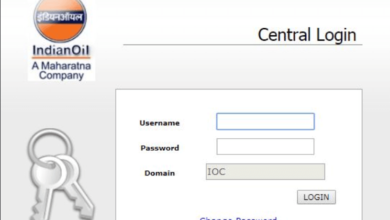Selling a House As‑Is in Florida? Here’s What Sellers Need to Watch Out For

Selling a house under an “as‑is” contract in Florida can feel appealing—faster process, fewer repair obligations, less negotiation over defects. However, “as‑is” does not mean “no responsibility.” Florida law imposes certain disclosure duties on sellers even as‑is contracts. If you’re considering selling a house as is in Florida, here are the key legal and practical issues you need to understand—so you avoid liability, delays, or litigation down the road.
What “As‑Is” Actually Means
In Florida real estate, an “as‑is” contract generally means that the seller is not obligated to make repairs or improvements before closing. The buyer accepts the property in its current condition—even with its flaws.
But “as‑is” does not relieve the seller from:
- Disclosing known defects and material issues;
- Being accurate and truthful in representations;
- Abiding by statutory and case‑law disclosure obligations.
Legal Foundations: Disclosure Obligations in Florida
Johnson v. Davis (1985)
One of the landmark cases in Florida is Johnson v. Davis, which established that even if an “as‑is” clause is used, a seller must disclose “all known facts materially affecting the value of the property which are not readily observable and are not known to the buyer.”
This ruling makes clear that “as‑is” doesn’t let you withhold knowledge of hidden or latent defects just because they aren’t obvious.
Statutory Requirements
In addition to case law, Florida statutes require certain disclosures, such as:
- Membership and obligations in homeowner or condominium associations.
- Coastal property disclosures: erosion risks, shoreline regulations, turtle nesting protections, etc.
- Hazards like radon gas (Florida Statute § 404.056), when applicable.
- Federal lead‑based paint disclosures for homes built prior to 1978.
Even though there is no single mandatory state “seller disclosure form” required in every Florida real estate transaction, using the Florida Association of Realtors’ Disclosure Form or a similar document is frequently advised.
What Sellers Must Disclose Even When Selling As‑Is
If you’re selling “as is,” you should still disclose any known material defects that are not apparent through a normal inspection. Key categories often include:
- Structural issues: foundation cracks, roof leaks, major structural damage.
- Water intrusion or mold problems.
- Issues with HVAC, plumbing or electrical systems.
- Pest infestation or insect damage (e.g. termites).
- Unpermitted work or building code violations and open permits.
- Zoning or boundary disputes, environmental hazards, soil issues or sinkholes.
See also: Short Term Financing Strategies for Business Growth and Stability
What Sellers Are Not Required to Disclose
While disclosure is broad, there are certain things Florida law specifically does not require sellers to divulge—even under an as‑is contract:
- Deaths by natural causes, suicide, or homicide on the property. Statute § 689.25 states that these are not material facts that must be disclosed.
- Diagnosis or infection of HIV/AIDS of an occupant. Also excluded under § 689.25.
Risks of Failing to Disclose Properly
If a seller fails to disclose known material defects, even under an “as‑is” sale, several risks arise:
- Buyer Lawsuit for Misrepresentation or Fraud – If the buyer can show the seller knew about a defect, didn’t disclose it, and it materially affected value.
- Rescission or Contract Cancellation – In some cases, the buyer may be able to unwind the deal or obtain damages.
- Damage to Reputation and Financial Exposure – Even beyond legal liability, a difficult closing, buyer dissatisfaction, or an adverse claim can delay or derail transactions.
Best Practices for Sellers to Protect Themselves
If you plan on selling a house as is in Florida, consider the following steps to reduce your exposure and increase transparency:
- Perform a pre‑listing inspection yourself (or hire a qualified inspector) to discover issues early.
- Keep records of past repairs, improvements, permits, or maintenance—these are useful if questions arise.
- Be honest about defects you know, even if minor. Full, written disclosure helps avoid misunderstandings.
- Use (or encourage use of) a comprehensive disclosure form; though not always required, documentation helps.
- Clarify in the contract the meaning of “as‑is” and that the buyer has had an opportunity for inspection.
- Consult with a real estate attorney (such as Vollrath Law) to draft or review contracts and disclosures so you meet your legal obligations.
When “Selling As‑Is” May Not Save You Time or Money
While “as‑is” labeling can reduce some repair obligations, it won’t always be less work. Some drawbacks:
- Buyers may demand larger price concessions if they believe many defects exist.
- Lenders or appraisers may find issues that affect financing if the property condition is sub‑par.
- Even with “as‑is,” escrow or closing may stall if defects are unexpectedly discovered.
- Legal costs if there’s a dispute after the sale.
If you’re planning on selling a house as is in Florida, it may seem simpler at first glance. But “as‑is” is not a free pass. Florida law requires sellers to disclose known material defects, even under an as‑is contract, and you could still face significant consequences if you fail to do so correctly.
For sellers, the smartest path is transparency, preparation, and sound legal guidance. A firm like Vollrath Law experienced in Florida real estate transactions can help you navigate disclosure obligations, understand contractual language, and avoid post-sale problems so your transaction goes as smoothly as possible.





